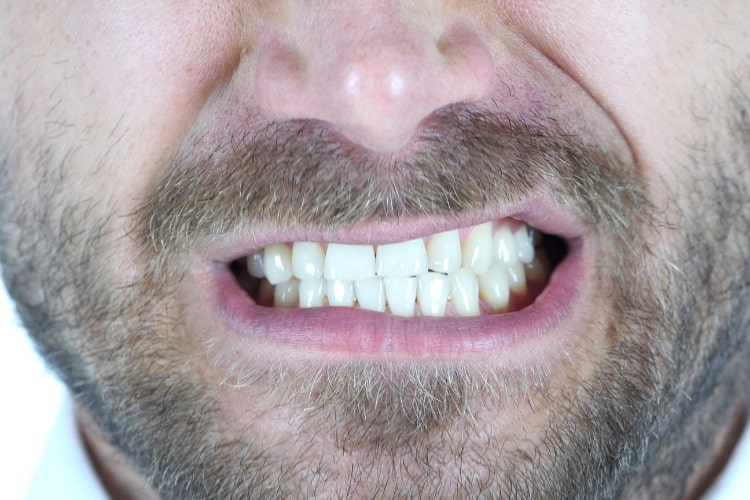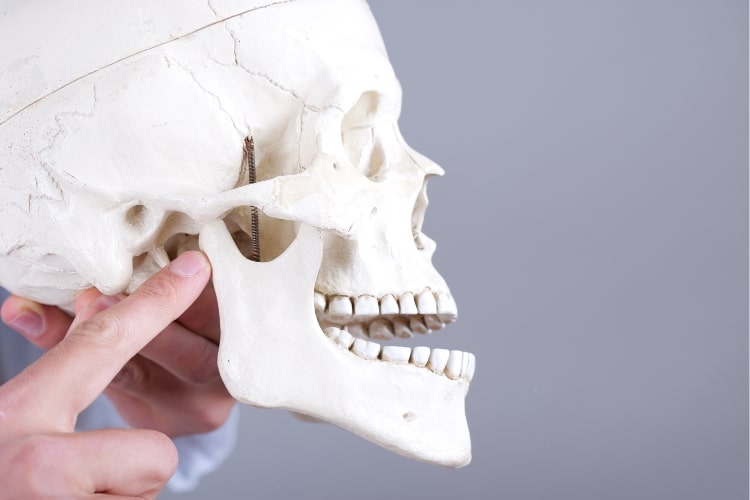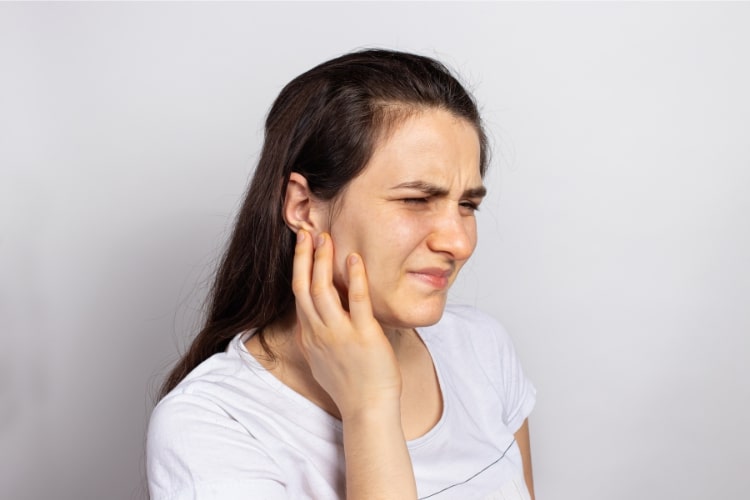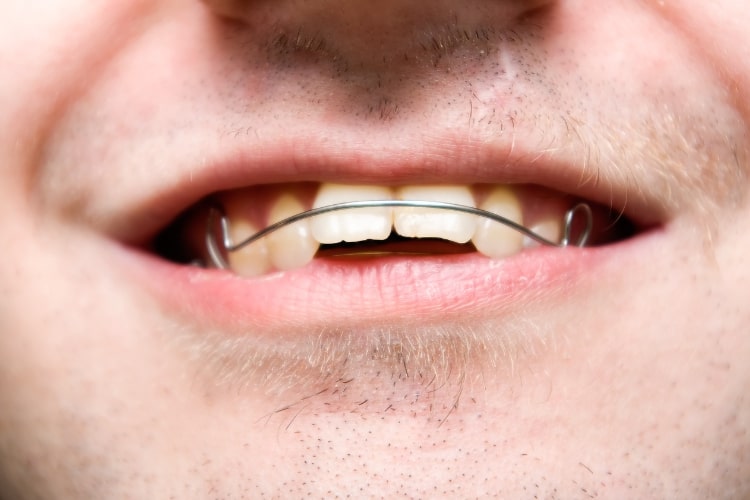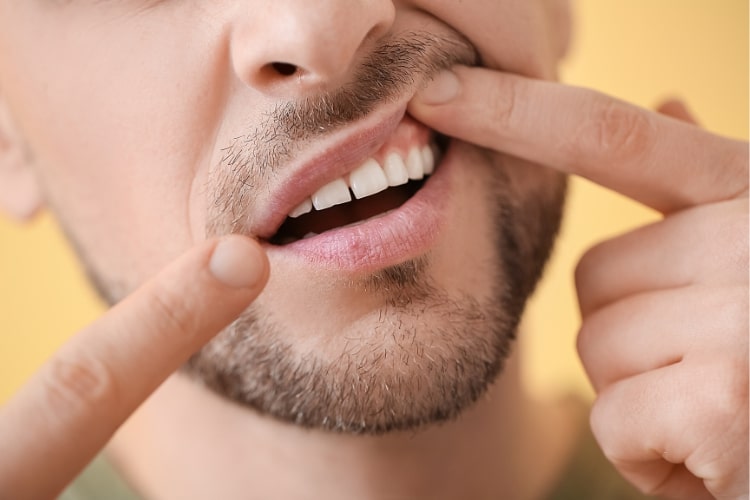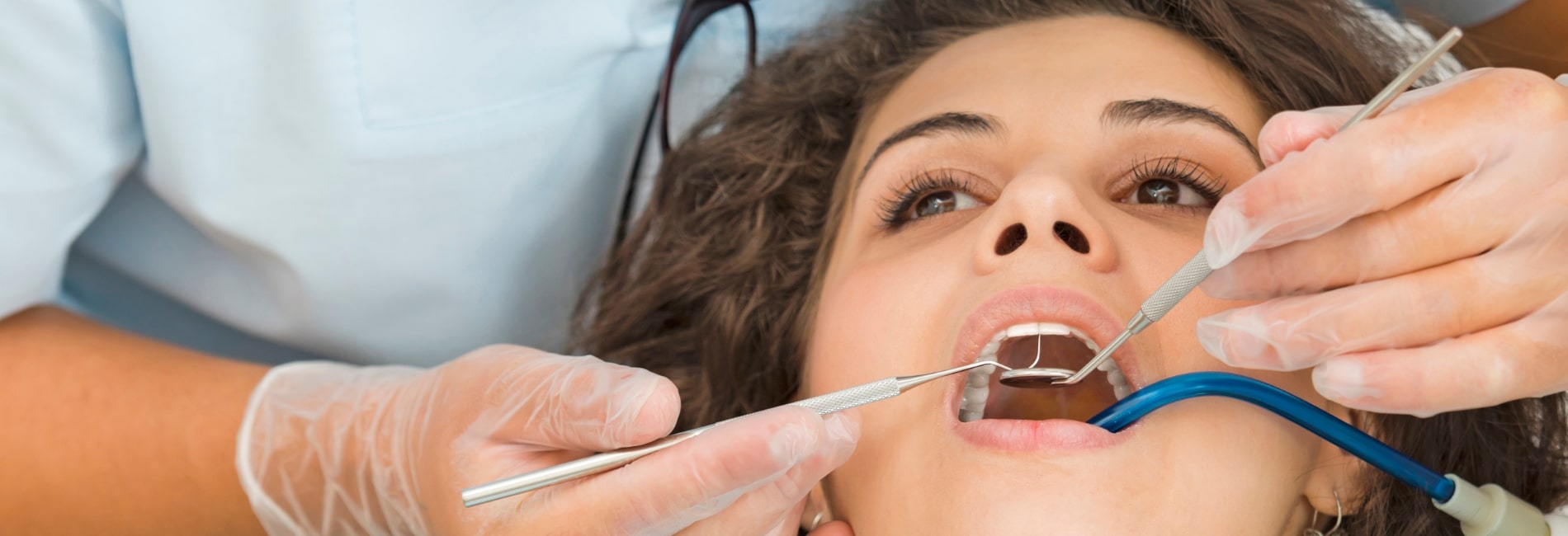
TEMPOROMANDIBULAR THERAPY
Indications You May Need TMJ Therapy
Temporomandibular Therapy joint (TMJ) dysfunction occurs when the ligaments and muscles surrounding the jaw joints become irritated and swollen. Its definite cause is often difficult to pinpoint. To determine the possible causes of TMJ and develop an appropriate treatment plan, the patient’s mouth is thoroughly examined using panoramic X-rays, CBCT scans, and MRI scans.
Causes or Aggravating/ Risk Factors of TMD Include:
The Procedure
TMJ disorder treatment can range from simple self-care practices and conservative measures to injections and open surgery. The following therapies can be used in conjunction with one another to provide relief from TMJ disorder are:

DRUGS THERAPY
Over-the-counter non-steroidal anti-inflammatory drugs, high doses of NSAIDs, or other narcotic analgesics. Prescribed muscle relaxants can help bruxism, and anti-anxiety drugs may be given to relieve stress.

SPLINT THERAPY
Night Guards of all-time worn splints are custom-made mouthpieces that are fitted over the upper or lower teeth set to provide stable tooth contacts during mouth closure. They can help correct improper bites by placing the jaw in the right position.

CORRECTIVE DENTAL TREATMENTS
These include missing teeth replacements or restorative treatments such as the use of dental crowns, bridges, or braces to restore the bite balance and alignment.

OTHER METHODS
Radiowave Therapy, Ultrasounds, Trigger Point Injections, Botox Injections, and other methods of treatment can all be used in conjunction to help heal TMJ and treat its symptoms.
We Help You Decide on a Treatment Plan
When you visit TDS, we will help you decide on one or a combination of treatments that are right for you and the severity of your case.

